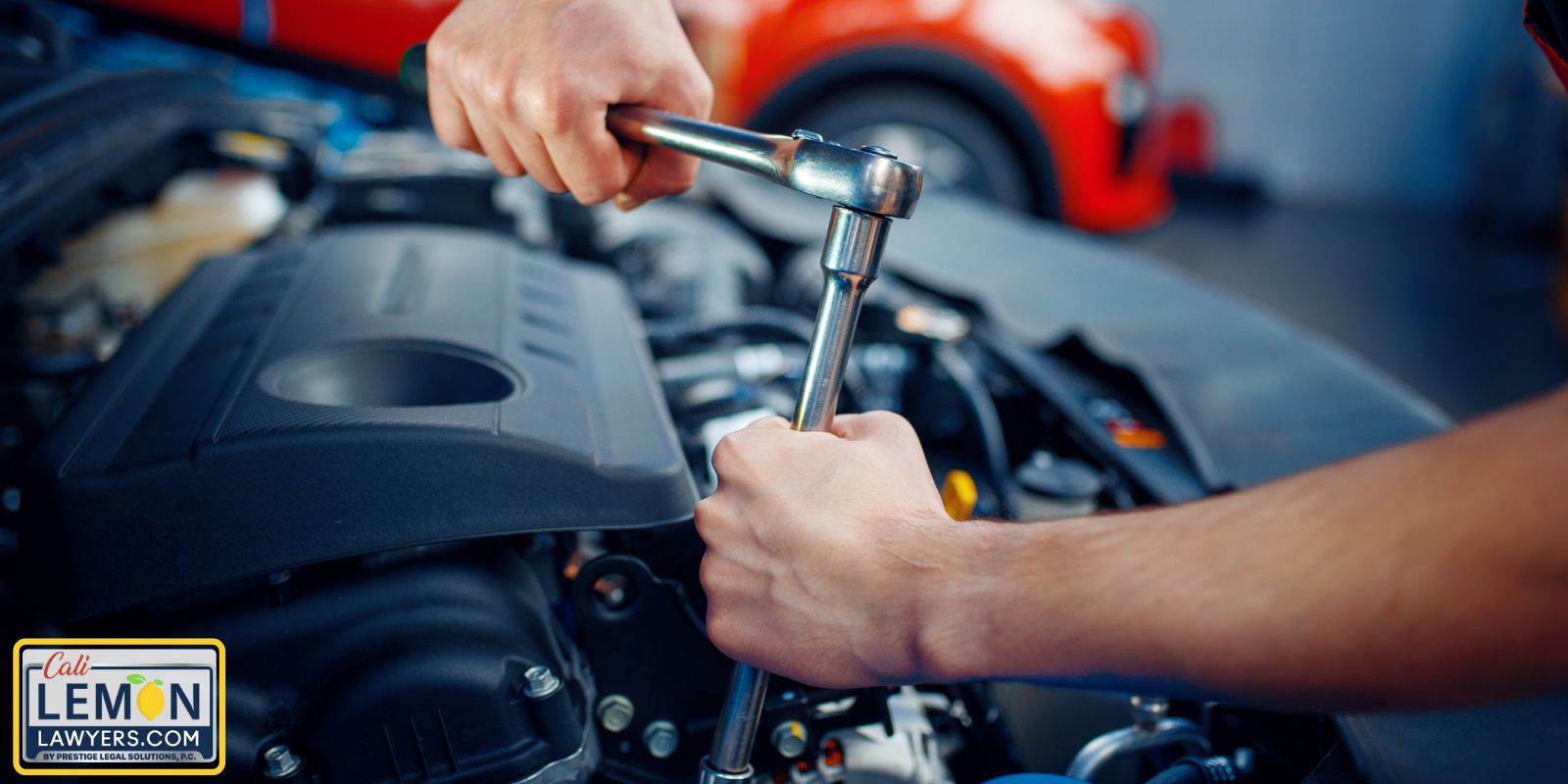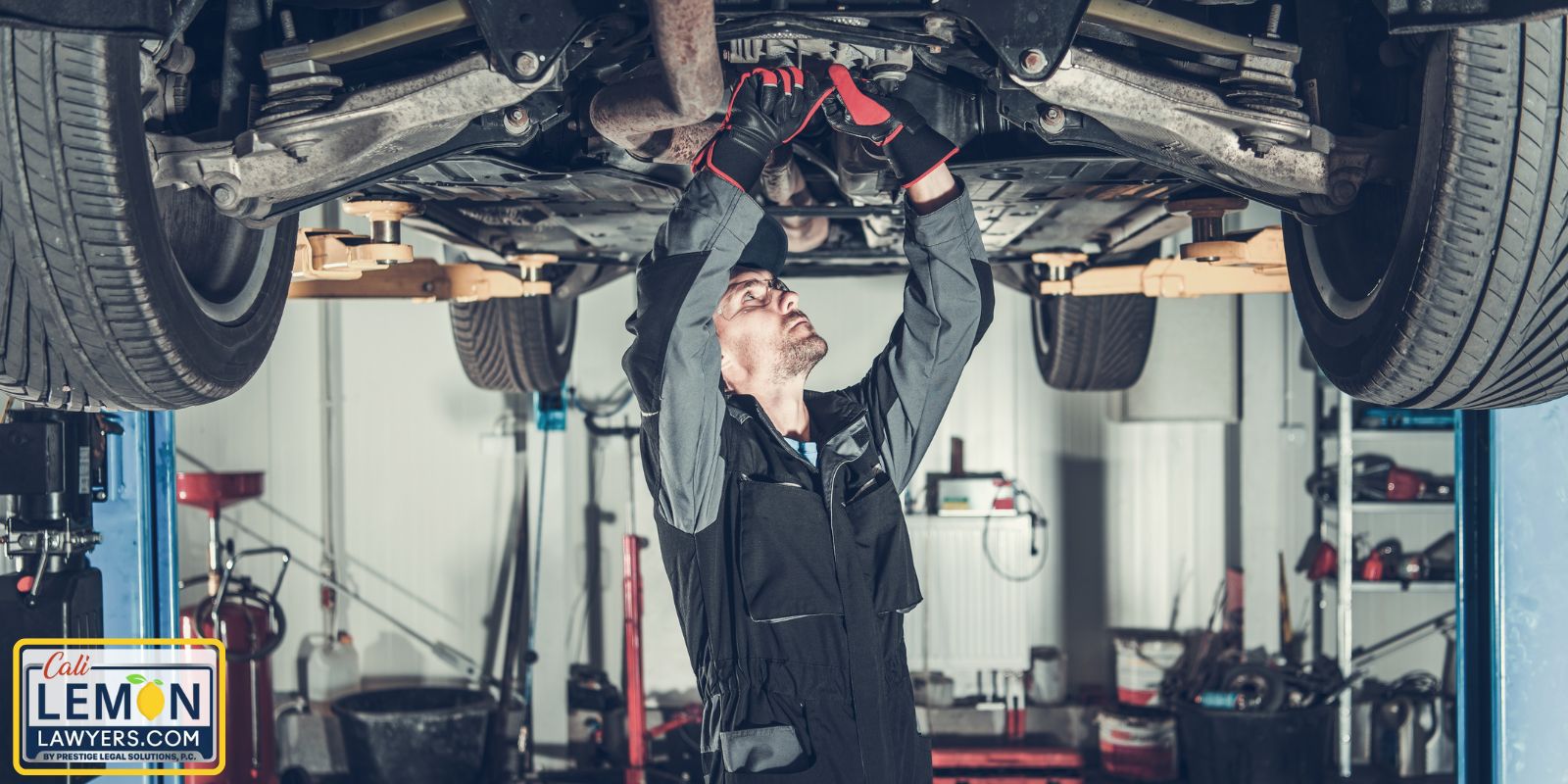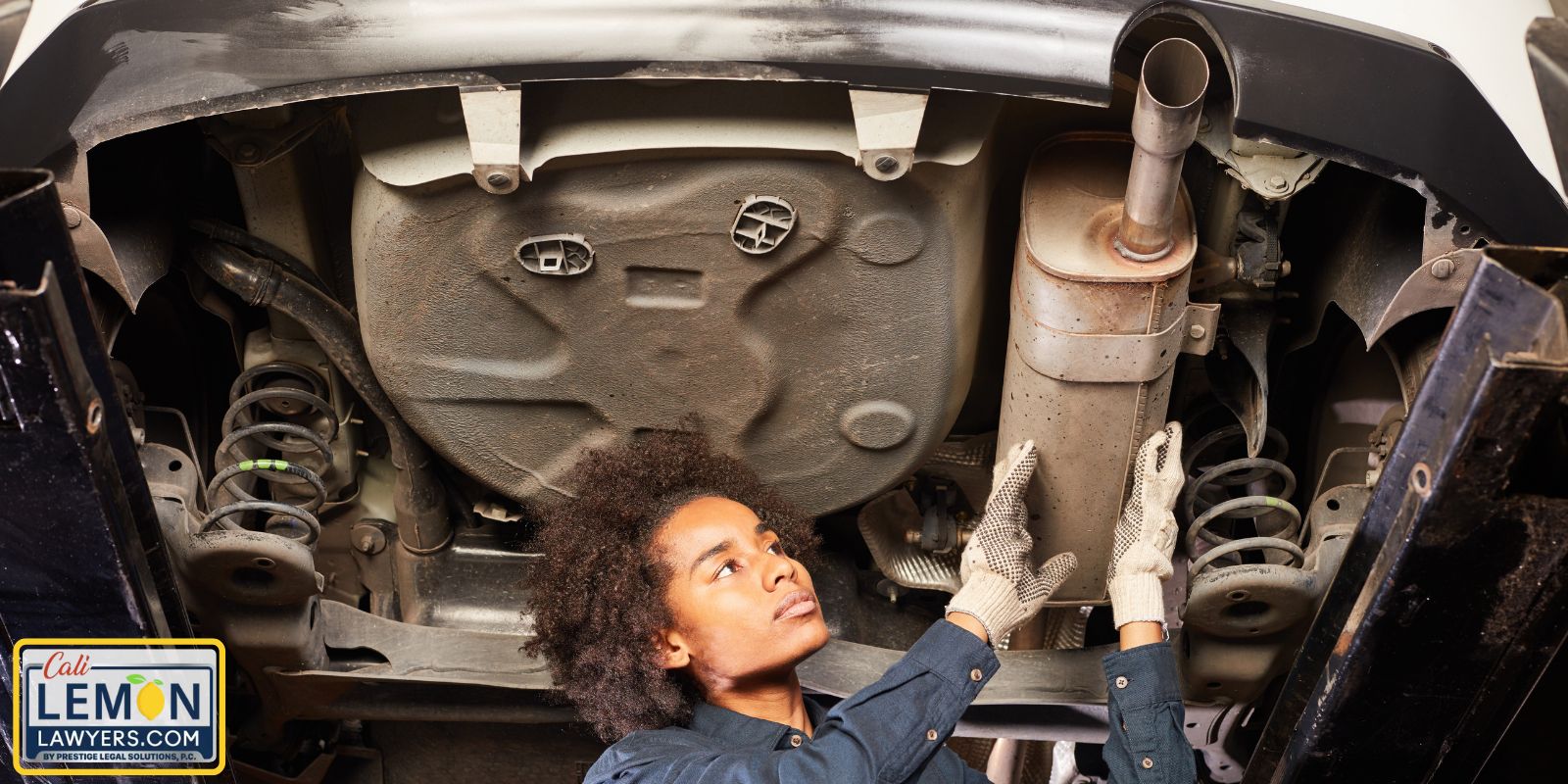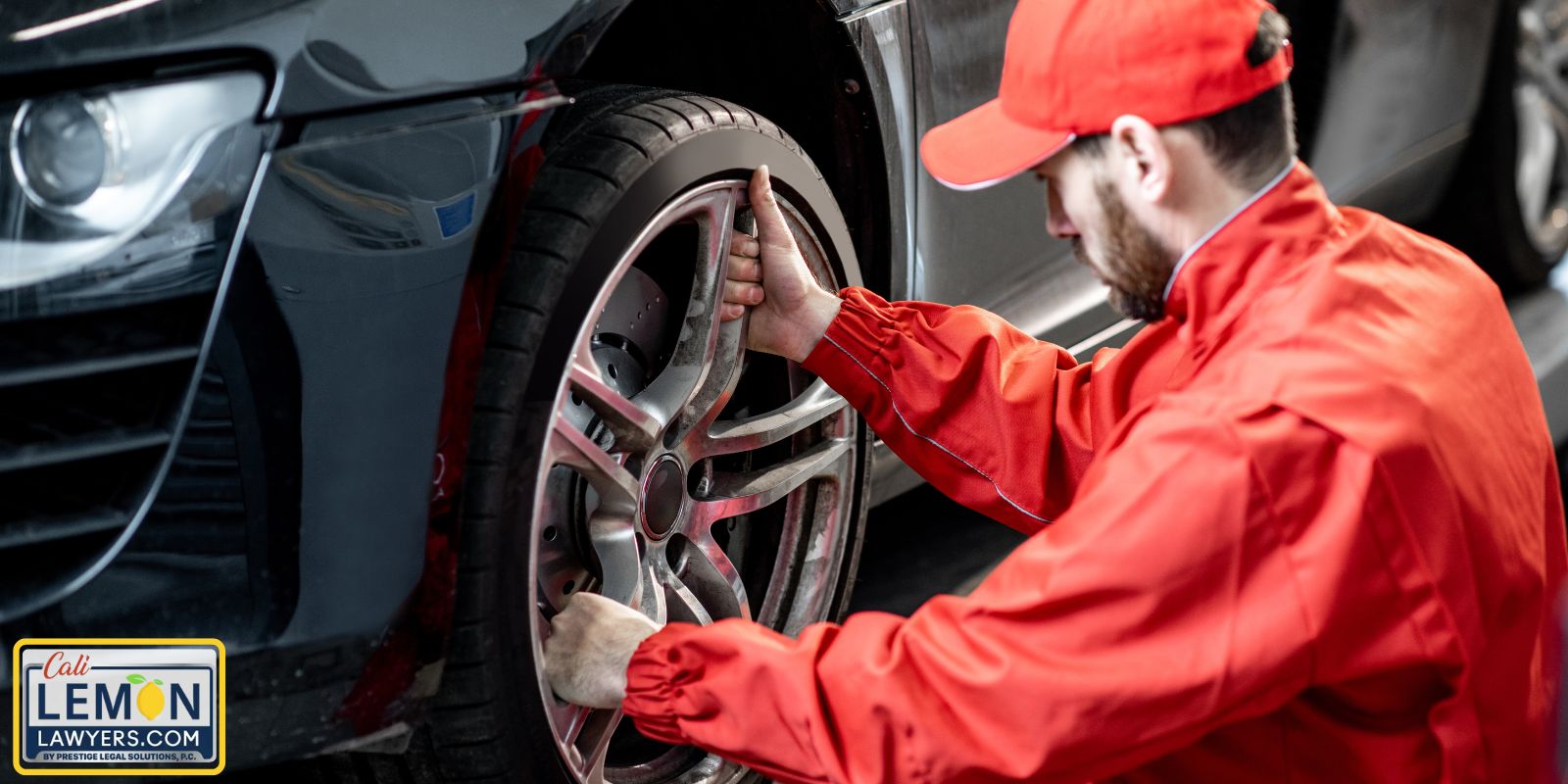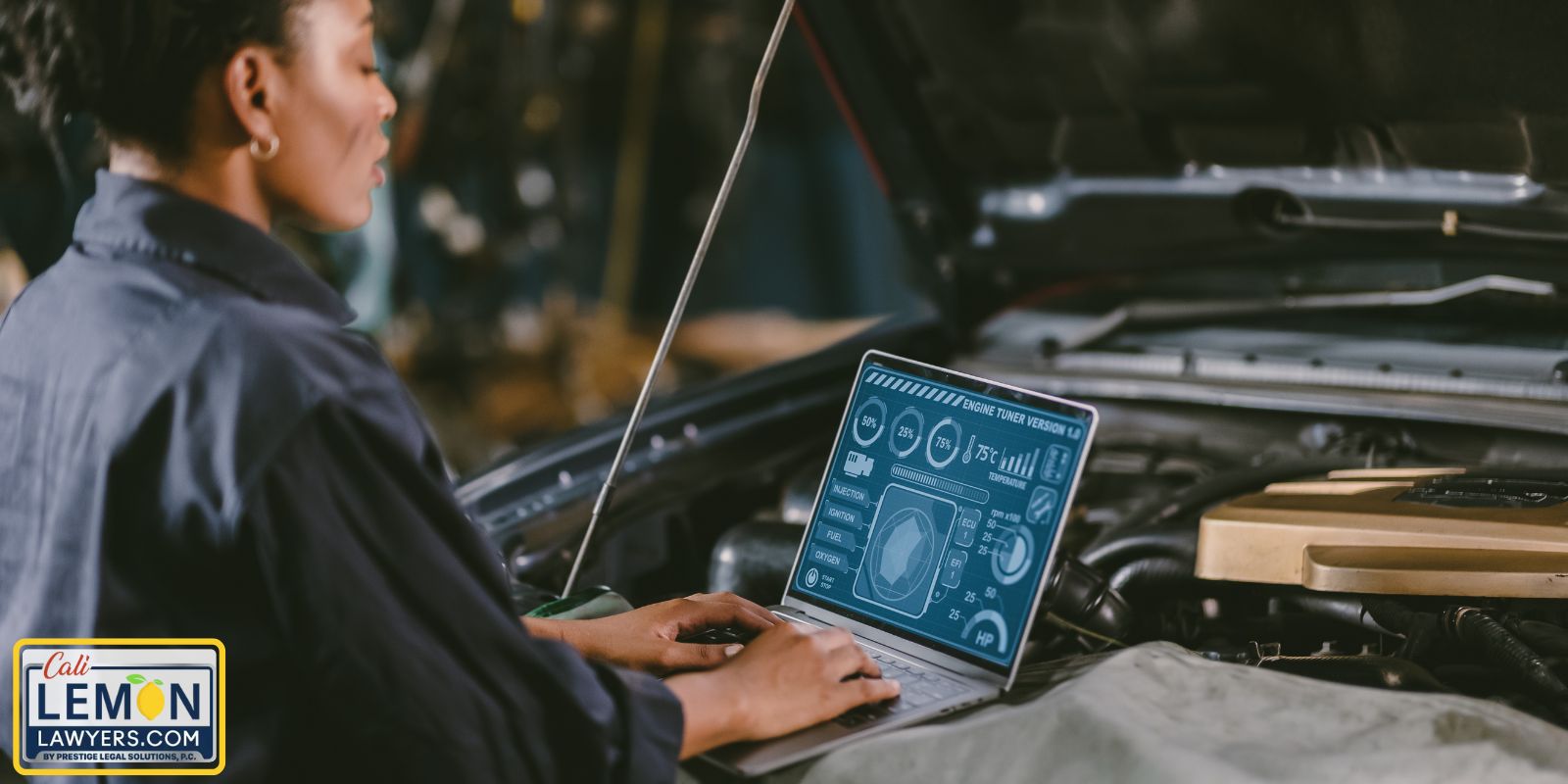
Why Does My Car Shake When Turning On?
If your car shakes when starting, there are several possible mechanical issues that you may look out for. Whether the vibration is for a short while or persists for long, it’s best to take appropriate measures to handle the car shaking immediately to avoid escalating into costly damage.
In this article, we’ll explore the common reasons why your car shakes while turning on and how to diagnose the problem. You’ll also learn about the role of the lemon laws in addressing car defects, your rights and benefits under lemon laws, and the appropriate steps to take when you suspect your car is a lemon.
Common Reasons Why Cars Shake When Turning On
Engine-Related Issues
Faults within the engine compartment such as misfires, faulty motor mounts, and timing issues can be the reason your car shakes when starting.
- When one or more of the engine cylinders fails to ignite the fuel, it causes incomplete combustion, resulting in a misfire. Sometimes, the engine misfire happens briefly, which could be why the car shakes when starting and then runs fine afterwards.
- Secondly, engines with faulty motor mounts may cause the car to shake as you turn it on or off. This is because bad motor mounts may not be able to hold the engine properly and absorb vibrations caused by the movements of the internal components of the engine and gearbox. Hence, a loose engine results in engine shaking which in turn results in car shaking.
- Also, timing issues such as faults in the timing sensor, or worn out timing belts can disrupt the combustion cycle, causing the engine to misfire and making the car shake.
Transmission Problems
If your car vibrates when you turn it on, it might be one of the signs of bad transmission.
Common transmission problems include clutch issues and faulty transmission mounts. In manual cars, the clutch is primarily used to engage or disengage the power to the transmission, helping the driver to change gears without stalling the engine or damaging the transmission components.
A faulty clutch system may not disengage the engine’s power properly from the transmission system, making the car shake when ignited. A worn-out clutch disc is one of the primary causes of a faulty clutch system. Also, faulty engine mounts in the transmission system may not absorb the vibration of the transmission system, causing the car to shake when you turn it on.
Drivetrain Issues
The drivetrain transmits power from the engine to the wheels to make your car move. Components of the drivetrain include the transmission, driveshaft, CV joints, U-joints, axle, and wheels. If any of these components is bad or worn out, it can make the car shake when you turn it on.
For example, bent or damaged driveshaft tends to vibrate. Also, a damaged U-joint can cause the driveshaft to vibrate. These vibrations can transfer to the rest of the car, causing a shake.
Fuel Delivery Problems
When you start your car and feel it shaking, one of the potential causes could be fuel delivery problems. A car engine requires a specific level of fuel pressure to operate correctly. And if the pressure is too low, it can cause performance problems.
- Low fuel pressure in the fuel tank leads to inadequate fuel delivery which affects the combustion process, resulting in the car shaking when turned on. Various factors can lead to a low fuel pressure including faulty fuel pump, clogged fuel filter, and leaking fuel injector.
- Your car’s fuel system has a filter that helps remove impurities and debris from the gasoline before it reaches the engine. Over time, this filter can become clogged with dirt and contaminants. Dirty filters restrict the flow of gasoline to the engine, making it run inefficiently. This can result in a rough shaking when you start your car.
- Also, fuel injectors spray a fine mist of fuel into the engine’s cylinder and they can become clogged with carbon deposits and dirt as you use them. A dirty fuel injector can disrupt the fuel-air mixture, leading to uneven combustion and engine hesitation, which can manifest as shaking during ignition.
Exhaust System Issues
A leak in the exhaust manifold can affect the engine’s performance, disrupting the flow of exhaust gas. This can make the car shake when turned on. Also, when the catalytic converter is clogged, it adds more load to the engine, causing the car to vibrate. The catalytic converter converts harmful gases such as carbon monoxide into less harmful gases, reducing emissions and air pollution.
Loose or Damaged Belts and Pulleys
A car needs healthy serpentine belts and pulleys to transfer power from the engine to other components such as the alternator, power steering pump, water pump, and air conditioning compressor.
If the belt is loose, it will slide on the pulley resulting in an efficient transfer of power. This makes the components operate at an inconsistent speed, causing a vibration in the car when turned on. A damaged pulley, on the other hand, may not be able to hold the belts properly, causing the belt to slide.
Wheel and Tire Problems
Unevenly balanced wheels due to bad wheel alignment or damaged tires can create vibrations that are felt throughout the vehicle, especially at lower speeds. Also, a compromised suspension system cannot effectively absorb road shocks, resulting in vibrations being transferred to the vehicle. Examples of suspension components that can affect the balance of a car include shock absorbers, struts, or control arms.
Brake Problems
Bad brake conditions, such as warped brake rotors, can make a car shake when it’s started. The rotor, a round, silver component of the brake system, can begin to lose its original shape with wear and tear.
When this happens, it flattens and gets compressed with the calipers and brake pads, causing the car to vibrate intensely. Bad brake rotors can also cause the steering wheel and brake pedal to vibrate.
Car Shakes When Turning On: Diagnosing the Problem
When you observe that your car shakes when you turn it on, run an effective diagnosis immediately to identify the root cause. This will help you prevent further damage, avoid costly repairs, and ensure your safety while driving. Here are some steps you should take to identify the root cause of the car vibration.
- Inspect and clean your spark plugs or change them if necessary. A faulty or clogged spark plug may cause a misfire.
- Check the exhaust system especially the catalytic converter and the exhaust pipes to know if there are any leaks or cracks.
- Check the engine mounts for wear and tear.
- Check your fuel pump, fuel filter, and injector for blockage or malfunction. If your fuel pump fails to create appropriate pressure for fuel injection, replace it.
Sometimes, you may be unable to identify the problem even after a thorough inspection. Also, you may identify the problem but can’t fix it by yourself. At this point, consult a professional engineer to assist you.
Addressing the Issue of Car Shaking When Turned on
A car shake can be a sign of serious issues that can pose a risk to your safety if ignored. For example, if the shake is caused by a faulty clutch system, you may find it hard to change gear on the road, increasing the chance of an accident. Also, transmission problems and engine-related issues can cause the car to stall while driving and this may lead to accidents.
This is why it’s important to not ignore the shakes when you notice them. Depending on the cause, you may apply a DIY fix or opt for professional repair. For example, if you need to check, clean, or replace spark plugs or fuel injectors, you may DIY them if you have the right tools or technical knowledge.
However, if the problem is complex such as faulty transmission issues, engine faults, or drivetrain issues, seek the help of a professional mechanic for a thorough and accurate repair.
Lemon Laws and Cars That Shake
Lemon laws are regulations that protect the consumers’ rights in the case of the purchase of a defective vehicle known as a lemon. One of the popular Lemon vehicles is the 2018 Chevy Bolt which comes with serious defects such as car battery malfunction and brake issues. Lemon laws ensure that the consumer gets compensation, repurchase, or replacement if the product cannot be repaired successfully for a reasonable number of attempts.
To qualify for lemon law protection, the vehicle must be covered by the manufacturer’s warranty and must have a substantial defect that affects its use, safety, or value. So, lemon laws can apply to a car that has recurring shaking defects, especially if the owner has attempted to repair it for a reasonable number of times. The recurring shake can make the vehicle unsafe and uncomfortable to use and also affect the value badly.
Give us a call or fill out the form below to quickly see if your car qualifies. ¿Hablas Español? Contáctenos ahora para recibir más información.
Rights of the Consumer under Lemon Laws
In California lemon laws, a car is considered a lemon if the defect:
- Is covered by the manufacturer’s warranty
- Substantially affects the use, safety, or value of the vehicle.
- Is not due to unreasonable or unauthorized use of the vehicle.
- Happened within 18 months of purchase or delivery, or 18,000 miles, which is first.
- Was not repaired successfully after four or more attempts.
The Lemon law entitles the vehicle owner to several types of compensation including repurchase, collateral charges, incidental and consequential damages, and attorney fees.
Steps to Take if You Suspect Your Car Is a Lemon
Document Everything
Keep record of the car’s issues and every repair attempt including the date, time, and what was done. The documentation serves as strong evidence in the case of the Lemon Law claim.
Communicate Concerns with Manufacturer or Dealer
Contact the manufacturer or the dealer to explain precisely the issues you’ve encountered with your vehicle. Also, provide them with relevant documents including the record of the repair attempts.
Consult with a Lemon Lawyer
Where the manufacturer or the dealer fails to resolve your issue, you may consult a professional lemon lawyer like the Cali Lemon Lawyers. At Cali Lemon Lawyers, we are experienced in the California lemon laws and are dedicated to helping you get the compensation you deserve. Thousands of satisfied lemon law clients have benefitted from our service and you may be the next. Contact us now for a free consultation.
Initiate a Lemon Law Claim
File a complaint with the court, seeking proper compensation from the manufacturer or dealer. Include the necessary documents to support your claim.
Tips on Preventing Future Car Issues
Regular Maintenance and Check-ups
This helps you identify problems early and fix them before they deteriorate into more costly issues. Always check your fluid level, brake pads, spark plugs, tire pressure, battery, and other essential components to ensure they’re in optimal condition. Also, change your engine oil regularly to keep your engine properly lubricated and protected.
Pay Attention to the Warning Signs Early
Check your dashboard for warning lights and observe the car’s performance to know if it’s becoming suboptimal. Also, pay attention to any strange noise developing in your vehicle and check the underneath of the car for any leaking fluid.
Buy From Reputable Manufacturer or Dealer
Before you buy a car, research properly and buy from a manufacturer or dealer who is reputable for producing reliable vehicles. Also, ensure the manufacturer offers a warranty to cover future damage.
Check the Vehicle History and Conduct Pre-purchase Inspections
If you’re buying a used car, obtain the vehicle’s history report and check it thoroughly for accidents, repairs, and other issues the car has had in the past. Also, hire a qualified mechanic to run a pre-purchase inspection to evaluate the overall health of the vehicle.
Conclusion
The Lemon laws protect the consumer’s right in the case of purchase of a defective vehicle known as Lemon. Understanding your rights under lemon laws will help you take appropriate and informed action when you acquire a defective vehicle. However, you should pay attention to any car’s performance and any unusual behavior such as noise and vibrations.
Is your car a lemon? Cali Lemon Lawyers are available and ready to give you cost-free and quality legal representation and support to ensure you receive your compensation. Contact us now for a free consultation.

